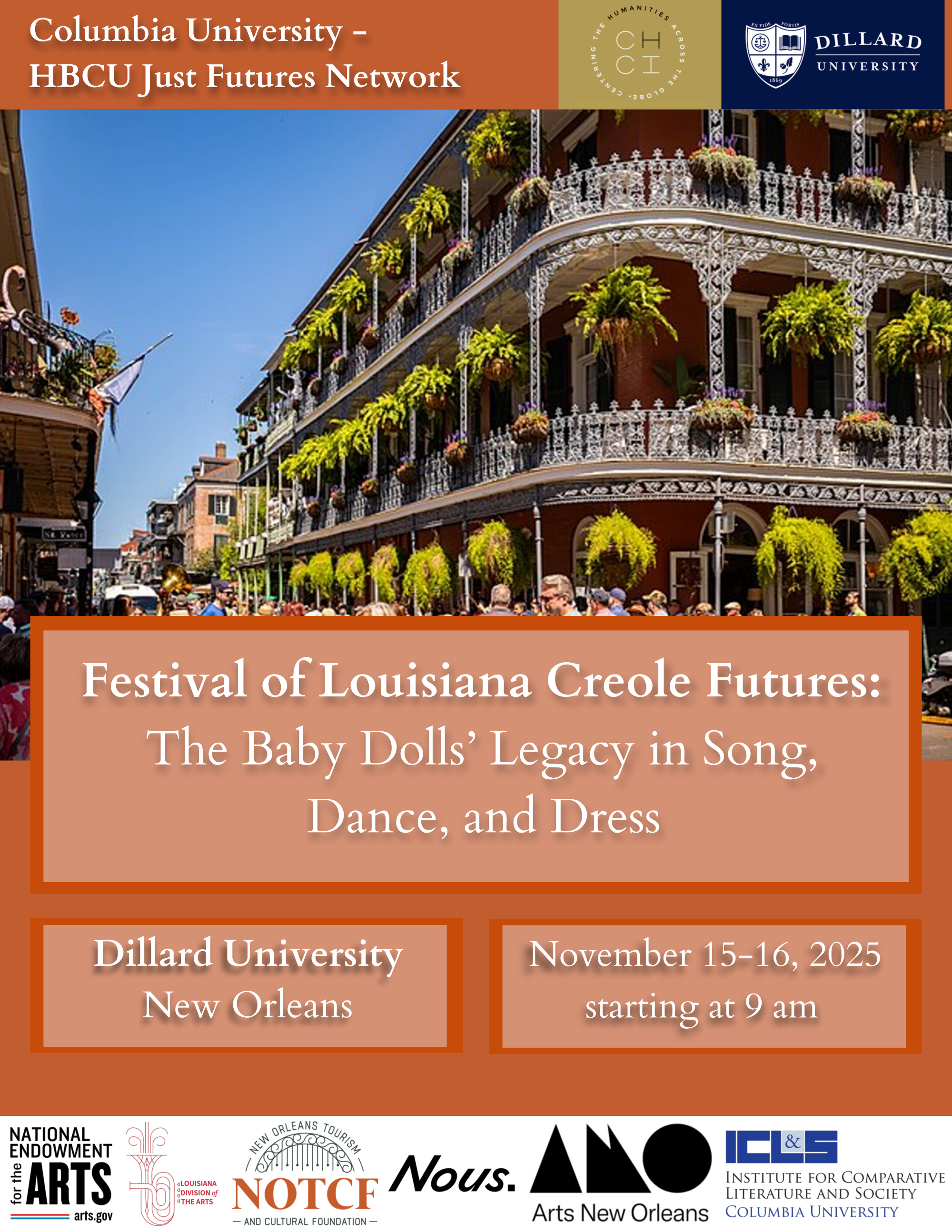
End Date : November 16, 12:00 am
Dillard University, New Orleans, Louisiana
Institute for Comparative Literature and Society (ICLS), Dillard University
New Orleans Tourism and Culture Fund and the Consortium of Humanities Centers and Institutes (CHCI)
This project aims to deepen collaborations among HBCU faculty, students, and public humanities scholars by integrating humanities-based research with global justice frameworks. Through a focus on art activism, data justice, archives and public memory, and performative practices of the South, the initiative seeks to build robust networks of inquiry grounded in place, memory, and community knowledge. It prioritizes sustained faculty and student exchange and public pedagogy rooted in African diasporic and southern traditions.
The first gathering of this initiative will take place at Dillard University in New Orleans, Louisiana, on November 15–16, 2025, under the theme:
Festival of Louisiana Creole Futures: The Baby Dolls’ Legacy in Song, Dance, and Dress
This day-and-a-half convening will engage the long history and contemporary power of Black performative resistance. The Baby Dolls are a more-than-100-year-old African American carnival masking tradition born in New Orleans, an embodied form of walking, dancing, singing, and chanting that animates community, critique, and joy. The festival explores how Afro-diasporic communities use ritual, performance, language, and movement not only to celebrate identity but also to contest erasure, transmit memory, and imagine otherwise.
Programming will include:
- Embodied Knowledge Workshops by Baby Doll maskers
- Faculty-led presentations on southern performative and archival traditions — Professor Phyllis Hale, Jackson State University/Kim Vaz-Deville, Dillard University
- Lecture on the endangered cultural form – Louisiana Creole (Kouri-Vini) — Linguist Lawson Ota
- Discussion on speculative worldmaking and embodied historiography — Professor Anupama Rao
The themes of this event, diasporic creolization, intergenerational memory, and cultural reclamation, will guide a full year of gatherings throughout the 2025–2026 academic year across the Columbia–HBCU network.







